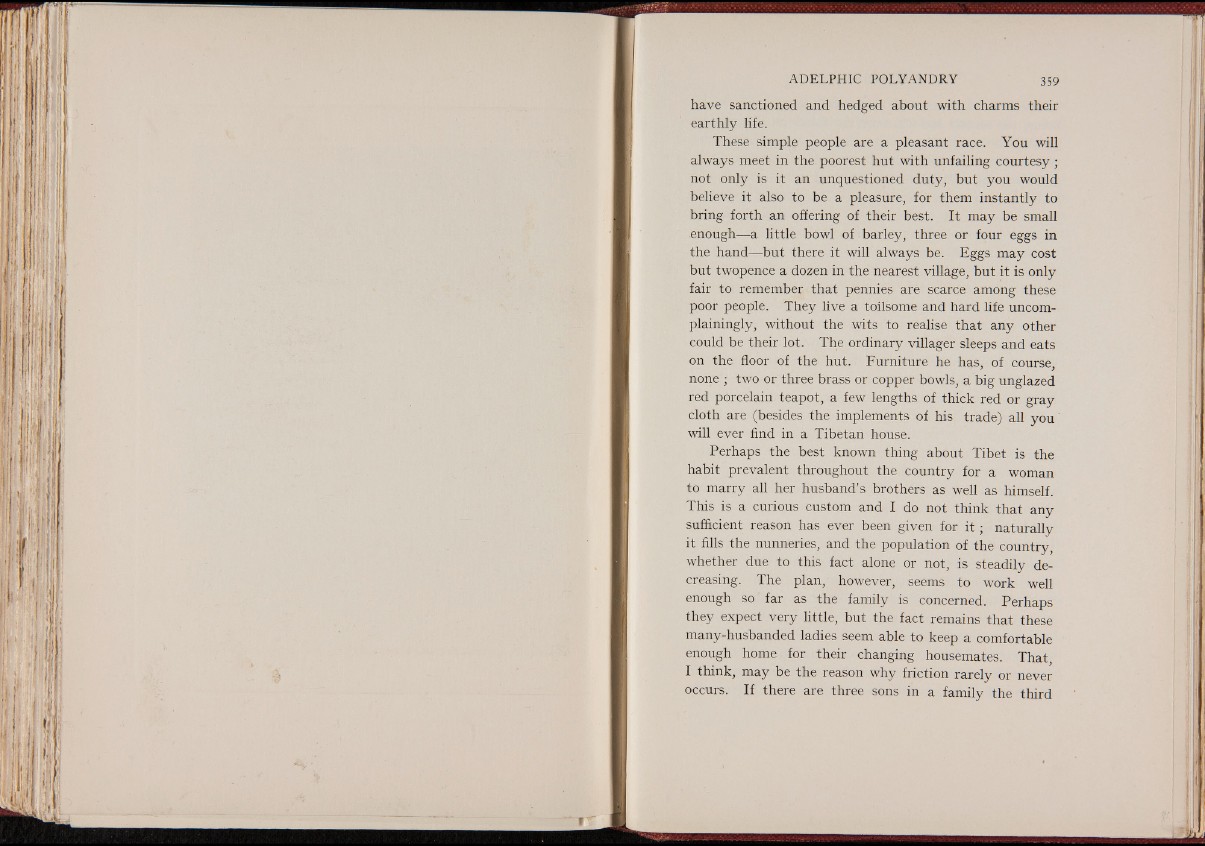
ADELPHIC POLYANDRY
have sanctioned and hedged about with charms their
earthly life.
These simple people are a pleasant race. You will
always meet in the poorest hut with unfailing courtesy;
not only is it an unquestioned duty, but you would
believe it also to be a pleasure, for them instantly to
bring forth an offering of their best. It may be small
enough— a little bowl of barley, three or four eggs in
the hand—but there it will always be. Eggs may cost
but twopence a dozen in the nearest village, but it is only
fair to remember that pennies are scarce among these
poor people. They live a toilsome and hard life uncomplainingly,
without the wits to realise that any other
could be their lot. The ordinary villager sleeps and eats
on the floor of the hut. Furniture he has, of course,
none ; two or three brass or copper bowls, a big unglazed
red porcelain teapot, a few lengths of thick red or gray
cloth are (besides the implements of his trade) all y o u ’
will ever find in a Tibetan house.
Perhaps the best known thing about Tibet is the
habit prevalent throughout the country for a woman
to marry all her husband’s brothers as well as himself.
This is a curious custom and I do not think that any
sufficient reason has ever been given for it ; naturally
it fills the nunneries, and the population of the country,
whether due to this fact alone or not, is steadily decreasing.
The plan, however, seems to work well
enough so far as the family is concerned. Perhaps
they expect very little, but the fact remains that these
many-husbanded ladies seem able to keep a comfortable
enough home for their changing housemates. That,
I think, may be the reason why friction rarely or never
occurs. If there are three sons in a family the third